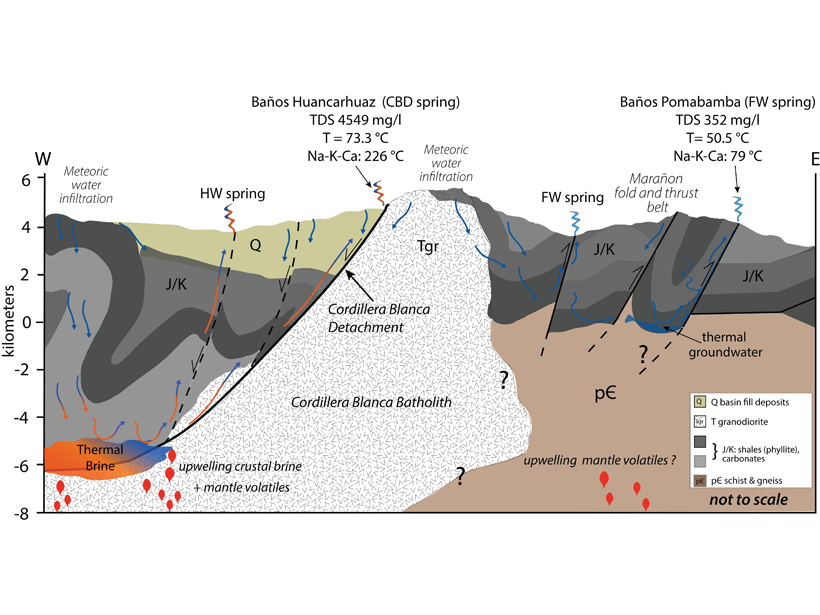Source: Geochemistry, Geophysics, Geosystems
Fault zones commonly act as conduits and/or barriers to fluid flow in both the shallow and deep continental lithosphere, in some cases even providing direct connections to the mantle. The circulation depth and distribution of fluids in faults zones can be deciphered from fluid temperature estimates and geochemistries.
Scott et al. [2020] explore the influence of crustal-scale structures on circulating fluids in the Peruvian Andes by exploring variations in hot spring geochemistry from adjacent mountain ranges with distinctly different styles of faulting. They find clear evidence that structural style influences fluid circulation depth. Geochemical signatures from the Cordillera Blanca extensional detachment system suggest that it accommodates deep circulation (9-11 kilometers) of crustal fluids. By contrast, geochemical data from the Cordillera Huayhuash, defined by a thrust belt and compressional structures, indicates much shallower (<4 km) circulating fluids. This research nicely illustrates the clear differentiation of fluid flow paths in the continental crust as a function of regional deformational style.
Citation: Scott, B. E., Newell, D. L., Jessup, M. J., Grambling, T. A., & Shaw, C. A. [2020]. Structural Controls on Crustal Fluid Circulation and Hot Spring Geochemistry Above a Flat‐Slab Subduction Zone, Peru. Geochemistry, Geophysics, Geosystems, 21, e2020GC008919. https://doi.org/10.1029/2020GC008919
—Whitney Behr, Editor, Geochemistry, Geophysics, Geosystems
Text © 2020. The authors. CC BY-NC-ND 3.0
Except where otherwise noted, images are subject to copyright. Any reuse without express permission from the copyright owner is prohibited.

